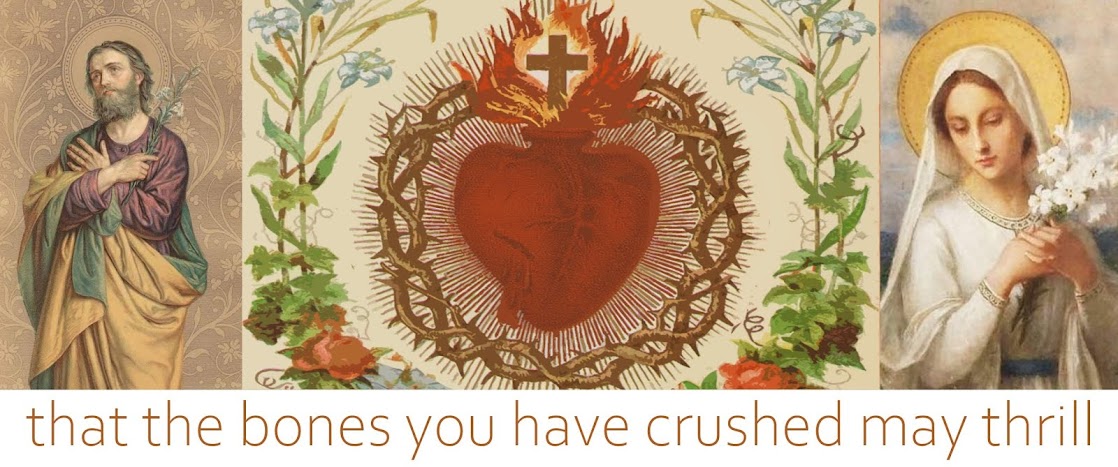This blog endeavours to be faithful to the Magisterium of the Church. The Magisterium is the body of teaching of the Church guarded as the Deposit of Faith by the Pope and Bishops. It finds expression in the Catechism of the Catholic Church. All Catholics are bound by sacred Conscience to uphold it and to defend it and to teach it to others.
The Magisterium or Teaching Authority of the Church
by Fr. William G. Most
By the Magisterium we mean the teaching office of the Church. It consists of the Pope and Bishops. Christ promised to protect the teaching of the Church : "He who hears you, hears me; he who rejects your rejects me, he who rejects me, rejects Him who sent me" (Luke 10. 16). Now of course the promise of Christ cannot fail: hence when the Church presents some doctrine as definitive or final, it comes under this protection, it cannot be in error; in other words, it is infallible. This is true even if the Church does not use the solemn ceremony of definition. The day to day teaching of the Church throughout the world, when the Bishops are in union with each other and with the Pope, and present something as definitive, this is infallible. (Vatican II, Lumen gentium # 25). It was precisely by the use of that authority that Vatican I was able to define that the Pope alone, when speaking as such and making things definitive, is also infallible. Of course this infallibility covers also teaching on what morality requires, for that is needed for salvation.
A "theologian" who would claim he needs to be able to ignore the Magisterium in order to find the truth is strangely perverse: the teaching of the Magisterium is the prime, God-given means of finding the truth. Nor could he claim academic freedom lets him contradict the Church. In any field of knowledge, academic freedom belongs only to a properly qualified professor teaching in his own field. But one is not properly qualified if he does not use the correct method of working in his field, e.g., a science professor who would want to go back to medieval methods would be laughed off campus, not protected. Now in Catholic theology , the correct method is to study the sources of revelation, but then give the final word to the Church. He who does not follow that method is not a qualified Catholic theologian. Vatican II taught (Dei Verbum # 10): "The task of authoritatively interpreting the word of God, whether written or handed on [Scripture or Tradition], has been entrusted exclusively to the living Magisterium of the Church, whose authority is exercised in the name of Jesus Christ."
Taken from The Basic Catholic Catechism
PART FIVE: The Apostles' Creed IX - XII
Ninth Article: "The Holy Catholic Church; the Communion of Saints"
By William G. Most. (c) Copyright 1990 by William G. Most.




